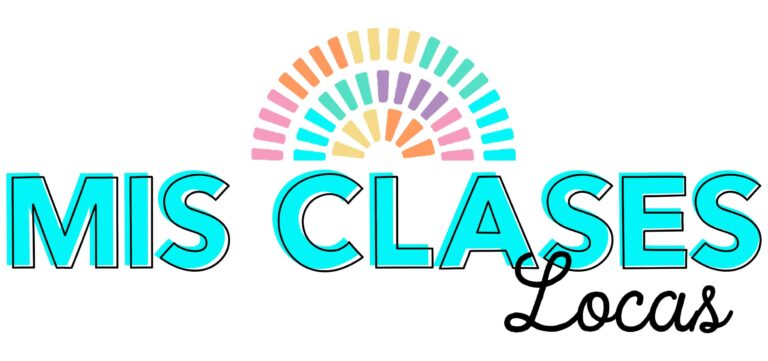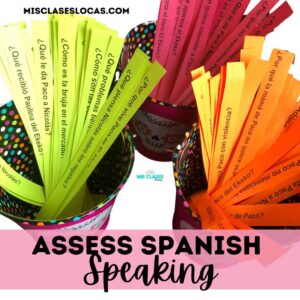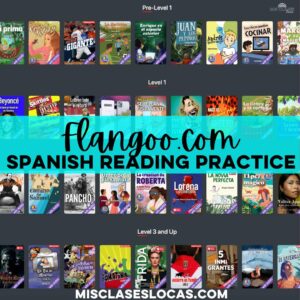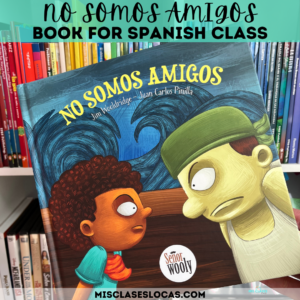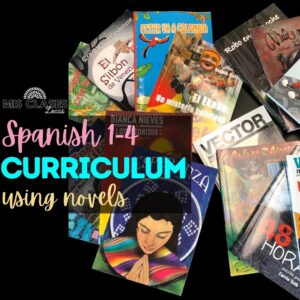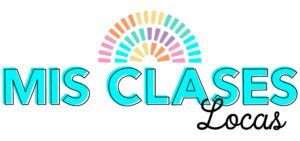As I mentioned in my post about this year’s curriculum, Spanish IV will be finishing the year doing an individualized novel study. Honestly when I wrote that I was not really sure what that meant for the class, but I knew with their feedback I would come up with a framework for how it would work to have every student in the class reading a different book.
Through a couple of grants, I was able to purchase a variety of books for my classroom library, but besides my class sets, I only have one of each of these books. I want to allow these high-level students choice and the chance to differentiate based on their reading level, but logistically I am still figuring out how it will all work out. For now, here is the basic outline of this quarter for Spanish IV.
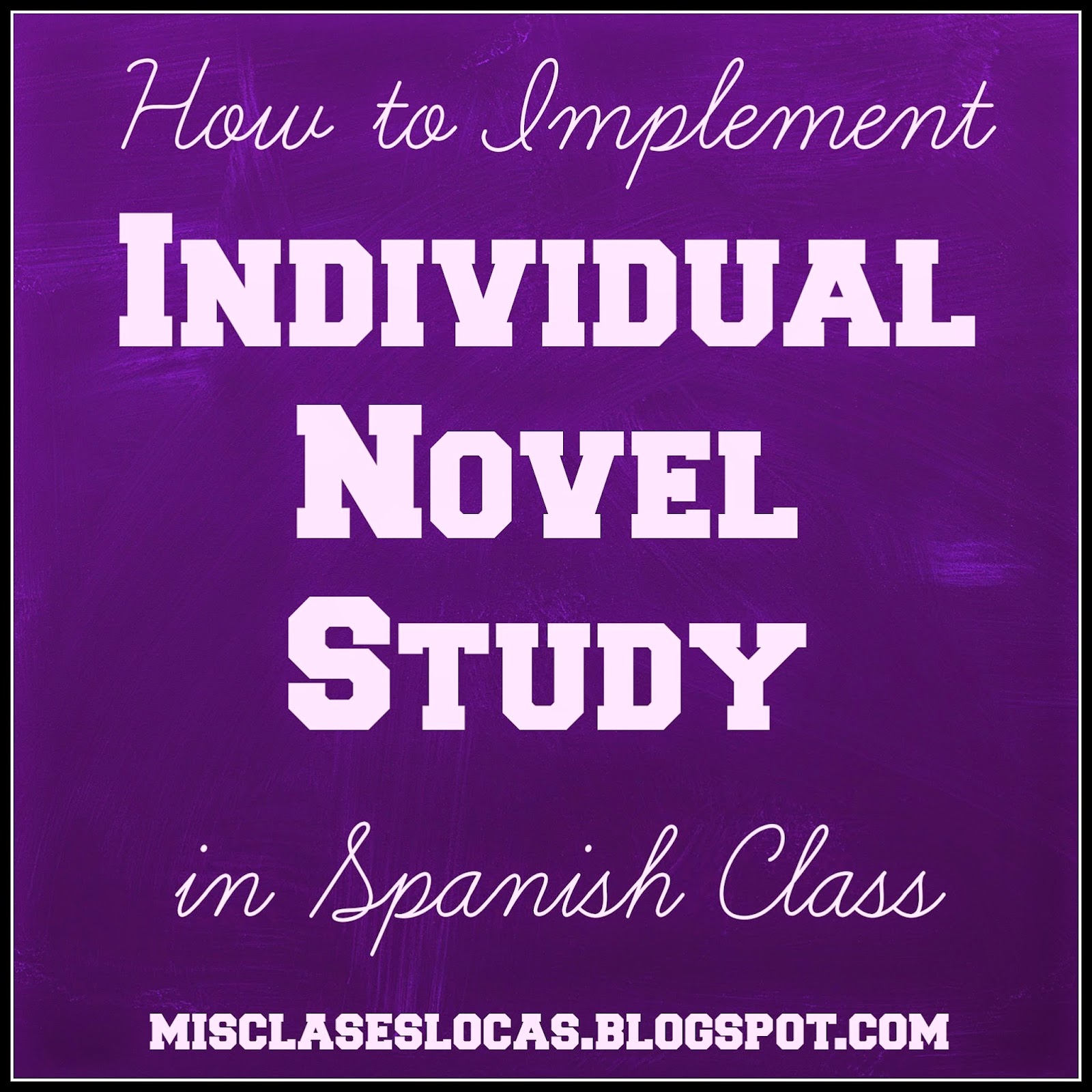
*Update I took this unit idea & made a better Lit circle blog post & resource
- Literature Circles in Spanish Class – blog post
- Literature Circles for Spanish Class – unit for purchase
Individual Novel Study in Spanish Class Plan
- 20 minutes of SSR class time Tuesday & Thursday
- The rest will be outside of class
Guided reading with the following resources
book discussion questions ideas in English
Spanish Novel Conversation Cards
- Characters
- Personality traits, past, decisions
- How change through the novel
- Setting
- Themes
- Plot/ Ending
- Personal feelings & connections
- Criticisms & Evaluation
Evaluation & Assessments of the Spanish Novel Unit
Interpersonal Speaking
Book discussions and free writes will occur on a weekly basis and all of the summative components will be due at the end of the quarter. (Two days for project presentations and one for presentational writing)
-
Formative – weekly class discussions
Interpretive Reading
-
Summative – Complete creative project to demonstrate understanding of novel
Presentational Speaking
-
Summative – Present project to the class in Spanish
Presentational Writing
-
Formative – weekly free writes
-
Summative – presentational writing assessment
I would love any feedback or advice if you have done something similar in your class!
Update! Overall I think it went great. It is a perfect option for classes that would like to read in Spanish, but do not have class novel sets. In a perfect world, multiple students would read the same book, literature circle style, which would then be discussed as a group. Yet, with my experimental group, having all students read different novels actually worked. They had complete choice in what they read, which led to higher interest and engagement.

I was able to purchase a variety of children’s books and novels in Spanish with my awesome IWLA Grant, which is what we used. If you do not have a class library, you could check out a bunch from your local library to use for the project. The books that my students chose to read were TPRS Publishing or translations of popular books (Harry Potter y la piedra filosofal, El Dador, La Casa de la Pradera & Pueblo fronterizo)
Keys to success for Individual Novels in Spanish Class
The key to success was allowing class time to read. This ensures that students have the time to read in Spanish, as well as lets the teacher make sure that they are actually reading, and not just looking at an English version online. My original plan was to have small amounts of time to read each day, but with this upper level class, they actually liked having long chunks of time, sometimes even a whole 45 minute class period.
Even through they had a ton of freedom, I loved seeing them read with a purpose. They knew in advance there were weekly interpersonal discussions and free writing, summative book project (which they presented to the class as presentational speaking) and presentational writing. With this in mind, many enjoyed reading at their own pace, while sometimes taking notes, or even making their own glossary.
Students knew in advance what day of the week and the topic for their interpersonal discussions & free write. Usually, they had 10 minutes to read and review, 15 minutes to discuss, and 15 minutes to write on their own. The first week the students did their interpersonal discussions with a partner with a similar book. Each week we actually switched partners, sometimes using small groups. In the future, if each small group was reading the same book they would stay together. I learned with everyone having a different book, groups of 2 or 3 provided the best discussion, with everyone getting a chance to contribute.
Sample Projects for Spanish novel study
 |
| Adrianna’s mural for Vida y Muerte en la Mara Salvatrucha |
While this self motivation may not be the case with every group, I have really found that with upper levels, the more ownership and responsibility the students are given, the greater chance they have to impress you. For the book projects there was the mural above, the mini book summary at the bottom, videos, a news article below, collage, Prezi, and presentations. For the book project this year I basically told they to “do something creative to show your comprehension of the book that you will present to the class.” Well you live and learn and some just made a presentation. While some were awesome, I should have been more specific in my expectations.
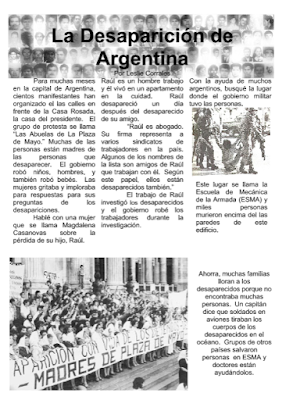 |
| Collin’s news article for La Guerra Sucia |
Many high fliers have told me that they would much rather have the chance to read at their own pace, then be stifled to only getting one chapter at a time as a class. Yet on the flip side, those who usually struggle LOVE reading as a class because with TPRS methods they “get it!” Basically, I think this time of intense individual novel study would work best with advanced students, fast finishers, and upper level students. Have you done something similar in your class? How did it go?
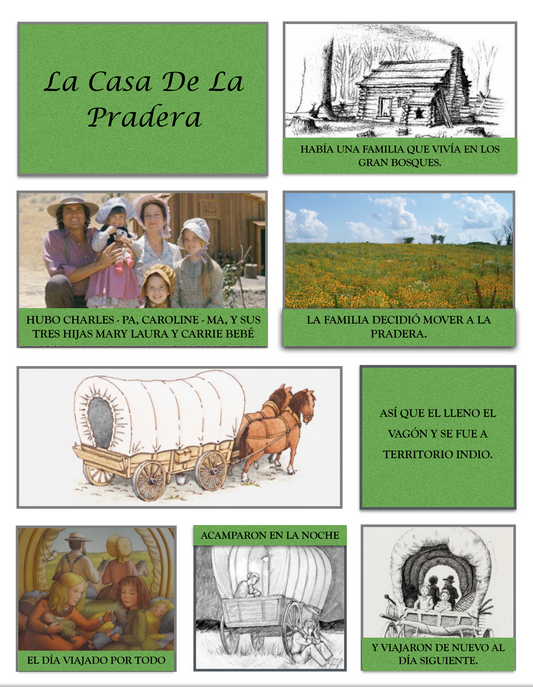 |
| part of Abby’s La Casa de la Pradera Project |
